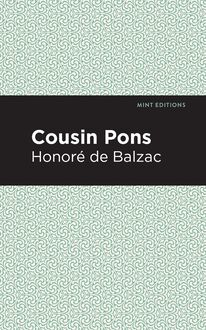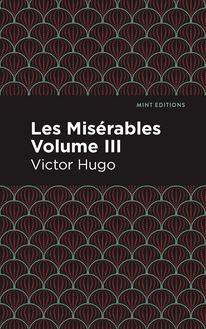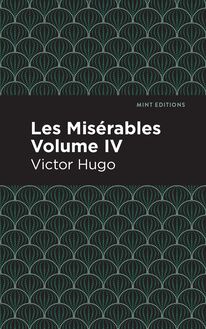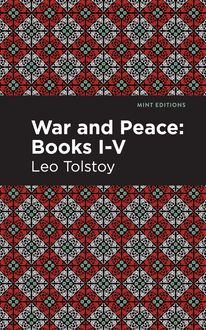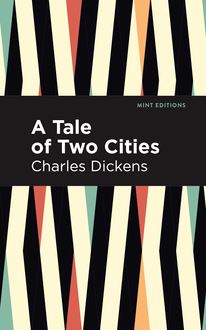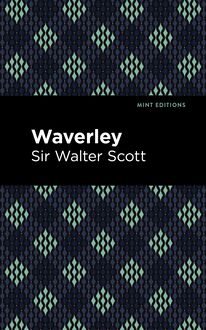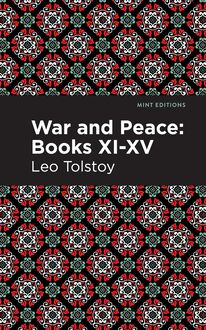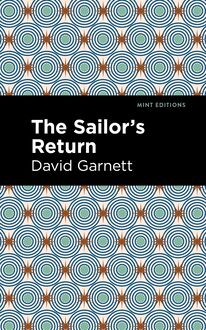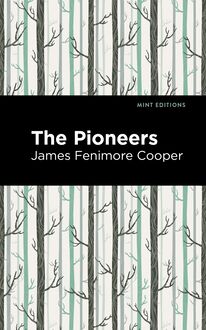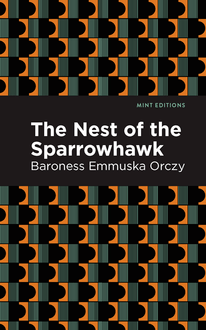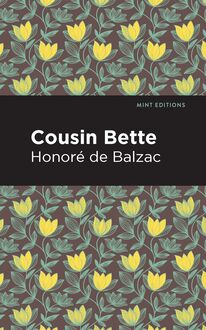-
 Univers
Univers
-
 Ebooks
Ebooks
-
 Livres audio
Livres audio
-
 Presse
Presse
-
 Podcasts
Podcasts
-
 BD
BD
-
 Documents
Documents
-
- Cours
- Révisions
- Ressources pédagogiques
- Sciences de l’éducation
- Manuels scolaires
- Langues
- Travaux de classe
- Annales de BEP
- Etudes supérieures
- Maternelle et primaire
- Fiches de lecture
- Orientation scolaire
- Méthodologie
- Corrigés de devoir
- Annales d’examens et concours
- Annales du bac
- Annales du brevet
- Rapports de stage
La lecture à portée de main
Vous pourrez modifier la taille du texte de cet ouvrage
Découvre YouScribe en t'inscrivant gratuitement
Je m'inscrisDécouvre YouScribe en t'inscrivant gratuitement
Je m'inscrisEn savoir plus
Vous pourrez modifier la taille du texte de cet ouvrage
En savoir plus

Description
No More Parades (1924) is a novel by Ford Madox Ford. Set during the First World War, the novel is the story of Christopher Tietjens, a brilliant statistician and wealthy aristocrat known as “the last Tory.” As he moves from a faithless marriage into an affair of his own, eventually volunteering to fight under dubious—perhaps suicidal—motives, Tietjens appears both symbolic and tragically human, a casualty of a dying era dedicating its final breaths to death, despair, and destruction. Adapted for television twice—a 1964 series starring Ronald Hines and Judi Dench, as well as a 2012 series starring Benedict Cumberbatch and Rebecca Hall—Parade’s End is essential to Ford’s reputation as a leading novelist of the twentieth century. In the words of W. H. Auden, “There are not many English novels which deserve to be called great: Parade’s End is one of them.” Having gone to war to leave his troubled romantic life behind him, Christopher Tietjens is late to realize that the glories of battle are a dangerous fiction indeed. Now a Captain, he is responsible for thousands of soldiers on the front lines of France, most of whom were not born into fortune as he was. As a German assault rains fire on their vulnerable position, as Tietjens holds a dying comrade in his arms, as he witnesses the best minds of his generation go mad amid so much destruction, Tietjens attempts to maintain a shred of his own fractured humanity. Back at home, his unfaithful wife takes full advantage of his prolonged absence, but soon longs to draw Christopher back into her life. Tragic and emotionally piercing, No More Parade’s is a story of romance, war and betrayal that proves a brilliant sequel to Some Do Not. With a beautifully designed cover and professionally typeset manuscript, this edition of Ford Madox Ford’s No More Parades is a classic work of British literature reimagined for modern readers.
Sujets
Informations
| Publié par | Mint Editions |
| Date de parution | 08 juin 2021 |
| Nombre de lectures | 0 |
| EAN13 | 9781513293639 |
| Langue | English |
| Poids de l'ouvrage | 1 Mo |
Informations légales : prix de location à la page 0,0500€. Cette information est donnée uniquement à titre indicatif conformément à la législation en vigueur.
Extrait
No More Parades
Ford Madox Ford
No More Parades was first published in 1925.
This edition published by Mint Editions 2021.
ISBN 9781513290782 | E-ISBN 9781513293639
Published by Mint Editions®
minteditionbooks .com
Publishing Director: Jennifer Newens
Design & Production: Rachel Lopez Metzger
Project Manager: Micaela Clark
Typesetting: Westchester Publishing Services
C ONTENTS P ART I I II III IV P ART II I II P ART III I II
PART I
I
W hen you came in the space was desultory, rectangular, warm after the drip of the winter night, and transfused with a brown-orange dust that was light. It was shaped like the house a child draws. Three groups of brown limbs spotted with brass took dim high-lights from shafts that came from a bucket pierced with holes, filled with incandescent coke, and covered in with a sheet of iron in the shape of a tunnel. Two men, as if hierarchically smaller, crouched on the floor beside the brazier; four, two at each end of the hut, drooped over tables in attitudes of extreme indifference. From the eaves above the parallelogram of black that was the doorway fell intermittent drippings of collected moisture, persistent, with glass-like intervals of musical sound. The two men squatting on their heels over the brazier—they had been miners—began to talk in a low sing-song of dialect, hardly audible. It went on and on, monotonously, without animation. It was as if one told the other long, long stories to which his companion manifested his comprehension or sympathy with animal grunts…
An immense tea-tray, august, its voice filling the black circle of the horizon, thundered to the ground. Numerous pieces of sheet-iron said, “Pack. Pack. Pack.” In a minute the clay floor of the hut shook, the drums of ears were pressed inwards, solid noise showered about the universe, enormous echoes pushed these men—to the right, to the left, or down towards the tables, and crackling like that of flames among vast underwood became the settled condition of the night. Catching the light from the brazier as the head leaned over, the lips of one of the two men on the floor were incredibly red and full and went on talking and talking…
The two men on the floor were Welsh miners, of whom the one came from the Rhondda Valley and was unmarried; the other, from Pontardulais, had a wife who kept a laundry, he having given up going underground just before the war. The two men a the table to the right of the door were sergeants-major; the one came from Suffolk and was a time-serving man of sixteen years’ seniority as a sergeant in a line regiment. The other was Canadian of English origin. The two officers at the other end of the hut were captains, the one a young regular officer born in Scotland but educated at Oxford; the other, nearly middle-aged and heavy, came from Yorkshire, and was in a militia battalion. The one runner on the floor was filled with a passionate rage because the elder officer had refused him leave to go home and see why his wife, who had sold their laundry, had not yet received the purchase money from the buyer; the other was thinking about a cow. His girl, who worked on a mountainy farm above Caerphilly, had written to him about a queer cow: a black-and-white Holstein—surely to goodness a queer cow. The English sergeant-major was almost tearfully worried about the enforced lateness of the draft. It would be twelve midnight before they could march them off. It was not right to keep men hanging about like that. The men did not like to be kept waiting, hanging about. It made them discontented. They did not like it. He could not see why the depot quarter-master could not keep up his stock of candles for the hooded lamps. The men had no call to be kept waiting, hanging about. Soon they would have to be having some supper. Quarter would not like that. He would grumble fair. Having to indent for suppers. Put his account out, fair, it would. Two thousand nine hundred and ninety-four suppers at a penny half-penny. But it was not right to keep the men hanging about till midnight and no suppers. It made them discontented and them going up the line for the first time, poor devils.
The Canadian sergeant-major was worried about a pigskin leather pocket-book. He had bought it at the ordnance depot in the town. He imagined himself bringing it out on parade, to read out some return or other to the adjutant. Very smart it would look on parade, himself standing up straight and tall. But he could not remember whether he had put it in his kitbag. On himself it was not. He felt in his right and left breast pockets, his right and left skirt pockets, in all the pockets of his overcoat that hung from a nail within reach-of his chair. He did not feel at all certain that the man who acted as his batman had packed that pocket-book with his kit, though he declared he had. It was very annoying. His present wallet, bought in Ontario, was bulging and split. He did not like to bring it out when Imperial officers asked for something out of a return. It gave them a false idea of Canadian troops. Very annoying. He was an auctioneer. He agreed that at this rate it would be half-past one before they had the draft down to the station and entrained. But it was very annoying to be uncertain whether that pocket-book was packed or not. He had imagined himself making a good impression on parade, standing up straight and tall, taking out that pocket-book when the adjutant asked for a figure from one return or the other. He understood their adjutants were to be Imperial officers now they were in France. It was very annoying.
An enormous crashing sound said things of an intolerable intimacy to each of those men, and to all of them as a body. After its mortal vomiting all the other sounds appeared a rushing silence, painful to ears in which the blood audibly coursed. The young officer stood violently up on his feet and caught at the complications of his belt hung from a nail. The elder, across the table, lounging sideways, stretched out one hand with a downward movement. He was aware that the younger man, who was the senior officer, was just upon out of his mind. The younger man, intolerably fatigued, spoke sharp, injurious, inaudible words to his companion. The elder spoke sharp, short words, inaudible too, and continued to motion downwards with his hand over the table. The old English sergeant-major said to his junior that Captain Mackenzie had one of his mad fits again, but what he said was inaudible and he knew it. He felt arising in his motherly heart that yearned at the moment over his two thousand nine hundred and thirty-four nurslings a necessity, like a fatigue, to extend the motherliness of his functions to the orfcer. He said to the Canadian that Captain Mackenzie there going temporary off his nut was the best orfcer in His Majesty’s army. And going to make a bleedin’ fool of hisself. The best orfcer in His Majesty’s army. Not a better. Careful, smart, brave as a ’ero. And considerate of his men in the line. You wouldn’t believe… He felt vaguely that it was a fatigue to have to mother an officer. To a lance-corporal, or a young sergeant, beginning to go wrong you could mutter wheezy suggestions through your moustache. But to an officer you had to say things slantways. Difficult it was. Thank God they had a trustworthy cool hand in the other captain. Old and good, the proverb said.
Dead silence fell.
“Lost the ______ ,” they “aye,” the runner from the Rhondda made his voice startlingly heard. Brilliant illuminations flickered on hut-gables visible through the doorway.
“No reason,” his mate from Pontardulais rather whined in his native sing-song, “why the bleedin” searchlights, surely to goodness, should light us up for all the ______ “Un planes to see. I want to see my bleedin’ little ’ut on the bleedin’ Mumbles again, if they don’t.”
“Not so much swear words, 0 Nine Morgan,” the sergeant-major said.
“Now, Dai Morgan, I’m telling you,” 09 Morgan’s mate continued. “A queer cow it must have been whatever. Black-and-white Holstein it wass…
It was as if the younger captain gave up listening to the conversation. He leant both hands on the blanket that covered the table. He exclaimed:
“Who the hell are you to give me orders? I’m your senior. Who the hell… Oh, by God, who the hell… Nobody gives me orders…” His voice collapsed weakly in his chest. He felt his nostrils to be inordinately dilated so that the air pouring into them was cold. He felt that there was an entangled conspiracy against him, and all round him. He exclaimed: “You and your ______ pimp of a general…!” He desired to cut certain throats with a sharp trench-knife that he had. That would take the weight off his chest. The “Sit down” of the heavy figure lumping opposite him paralysed his limbs. He felt an unbelievable hatred. If he could move his hand to get at his trench-knife…
09 Morgan said: “The ______ ’s name who’s bought my bleedin’ laundry is Williams… If I thought it was Evans Williams of Castell Goch, I’d desert.”
“Took a hatred for it cawve,” the Rhondda man said. “And look you, before you could say…” The conversation of orfcers was a thing to which they neither listened. Officers talked of things that had no interest. Whatever could possess a cow to take a hatred of its calf? Up behind Caerphilly on the mountains? On an autumny morning the whole hillside was covered with spider-webs. They shone down the sun like spun glass. Overlooked the cow must be.
The young captain leaning over the table began a long argument as to relative seniority. He argued with himself, taking both sides in an extraordinarily rapid gabble. He himself had been gazetted after Gheluvelt. The other not till a year later. It was true the other was in permanent command of that depot, and he himself attached to the unit only for rations and discipline. But that did not include orders to sit down. What the hell, he wanted to know, did the other mean
-
 Univers
Univers
-
 Ebooks
Ebooks
-
 Livres audio
Livres audio
-
 Presse
Presse
-
 Podcasts
Podcasts
-
 BD
BD
-
 Documents
Documents
-
Jeunesse
-
Littérature
-
Ressources professionnelles
-
Santé et bien-être
-
Savoirs
-
Education
-
Loisirs et hobbies
-
Art, musique et cinéma
-
Actualité et débat de société
-
Jeunesse
-
Littérature
-
Ressources professionnelles
-
Santé et bien-être
-
Savoirs
-
Education
-
Loisirs et hobbies
-
Art, musique et cinéma
-
Actualité et débat de société
-
Actualités
-
Lifestyle
-
Presse jeunesse
-
Presse professionnelle
-
Pratique
-
Presse sportive
-
Presse internationale
-
Culture & Médias
-
Action et Aventures
-
Science-fiction et Fantasy
-
Société
-
Jeunesse
-
Littérature
-
Ressources professionnelles
-
Santé et bien-être
-
Savoirs
-
Education
-
Loisirs et hobbies
-
Art, musique et cinéma
-
Actualité et débat de société
- Cours
- Révisions
- Ressources pédagogiques
- Sciences de l’éducation
- Manuels scolaires
- Langues
- Travaux de classe
- Annales de BEP
- Etudes supérieures
- Maternelle et primaire
- Fiches de lecture
- Orientation scolaire
- Méthodologie
- Corrigés de devoir
- Annales d’examens et concours
- Annales du bac
- Annales du brevet
- Rapports de stage

